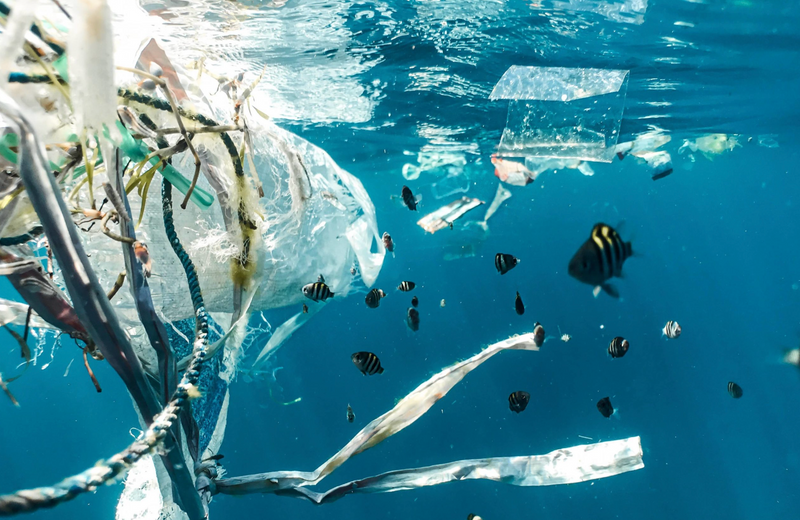In our quest for a greener and healthier planet, it is essential to recognize the significance of our oceans. The vast bodies of water that cover our planet are not only a source of beauty and wonder but also crucial to our very existence. However, the health of our oceans and marine ecosystems is under threat, and it is our responsibility to protect them. In this article, we will delve into the importance of our oceans, the challenges they face, and why we must take action to safeguard them.
The Ocean's Vital Role
Our oceans play a fundamental role in maintaining the balance of life on Earth. They cover about 70% of our planet's surface, absorb carbon dioxide, produce oxygen, regulate the climate, and provide a habitat for an incredible array of marine species. The ocean is a source of food, livelihood, and inspiration for millions of people around the world. It is also a source of immense natural beauty and offers recreational opportunities for countless individuals.
The Challenges We Face
Despite its significance, the ocean and its ecosystems are currently facing numerous threats. Pollution, overfishing, habitat destruction, climate change, and plastic waste are just a few of the issues that are wreaking havoc on marine life and the environment. Human activities, such as industrialization, improper waste disposal, and the use of harmful chemicals, have led to the degradation of water quality and the destruction of marine habitats. Additionally, the increase in greenhouse gas emissions is causing ocean acidification and rising sea temperatures, which have devastating effects on coral reefs and marine species.
The Need for Action
To ensure a sustainable future for our planet and future generations, we must prioritize the protection of our oceans. Taking action now is not only an environmental imperative but also an economic and social necessity. Here's why:
-
Biodiversity Preservation: Our oceans are home to a vast array of species, many of which are yet to be discovered. Protecting marine biodiversity ensures the stability of ecosystems and supports the overall health of the planet.
-
Climate Regulation: Oceans act as a vital regulator of our climate by absorbing a significant amount of carbon dioxide. By safeguarding marine ecosystems, we can help mitigate climate change and its adverse effects.
-
Sustainable Fisheries: Overfishing has led to a decline in fish populations and disrupted the balance of marine ecosystems. Implementing sustainable fishing practices and establishing marine protected areas can help restore fish stocks and preserve livelihoods dependent on fishing.
-
Plastic Pollution Reduction: The alarming accumulation of plastic waste in our oceans poses a severe threat to marine life. By reducing single-use plastics, promoting recycling, and raising awareness, we can combat plastic pollution and protect marine ecosystems.
-
Ecosystem Services: The ocean provides crucial ecosystem services, including coastal protection, nutrient cycling, and climate regulation. Preserving these services is essential for the well-being of coastal communities and the planet as a whole.
-
Economic Opportunities: Sustainable ocean-based industries, such as tourism, renewable energy, and aquaculture, hold significant economic potential. By investing in these sectors and adopting responsible practices, we can create jobs and foster economic growth while ensuring the long-term health of our oceans.
It's Our Duty to Protect the Ocean
Protecting our oceans requires collective effort and a commitment to change. Governments, businesses, communities, and individuals all have a role to play in preserving these invaluable resources. Here are some actions we can take:
-
Reduce Waste: Minimize plastic consumption, recycle diligently, and participate in beach and ocean cleanup initiatives.
-
Support Sustainable Fisheries: Choose sustainably sourced seafood and support local fishermen who adhere to responsible fishing practices.
-
Conserve Water: Adopt water-saving habits in our daily lives to reduce the amount of pollution and wastewater entering our oceans.
-
Promote Awareness: Educate ourselves and others about the importance of the ocean and the need for its protection. Share information, engage in discussions, and support organizations working toward ocean conservation.
-
Advocate for Change: Use our voices to influence policymakers, urging them to implement stronger regulations and measures to protect the ocean.
-
Responsible Tourism: When visiting coastal areas, be mindful of our impact on marine ecosystems. Respect coral reefs, avoid littering, and support eco-friendly tourism initiatives.
By taking these steps and more, we can contribute to the preservation of our oceans and the environment. Let's embrace our responsibility to protect these invaluable ecosystems and ensure a sustainable future for generations to come.
Remember, the ocean's health is directly linked to our own well-being. As we strive for a greener future, let us never forget the vital role the ocean plays and the urgent need to safeguard it. Together, we can make a difference and create a world where our oceans thrive, providing life, inspiration, and wonder for generations to come.


